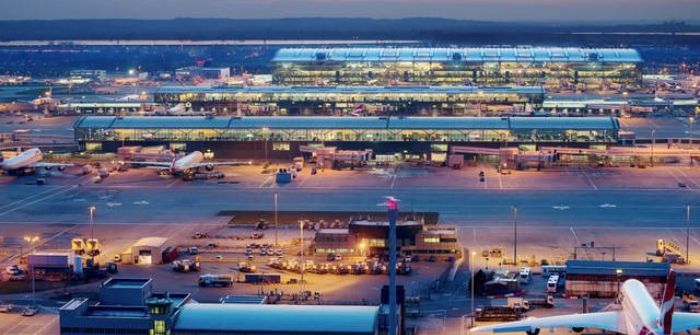As program designer for the H7 Carbon and Sustainability Programme, Mott MacDonald will work with Heathrow Airport to plan and design projects that will enable a reduction of Heathrow’s carbon footprint by 2.3 million tons by the end of 2026 and lay the foundation to achieve net zero by 2050.
The work forms a core part of the airport’s capital development program for the current five-year regulatory period (H7), which runs from 2022 to 2026. The decarbonization of aviation encompasses airport operations, surface access, future fuels, energy transition, operational and embodied carbon, nature-based solutions, behavioral change, data and digital and smart systems.
Mott MacDonald has experience in helping develop the latest industry guidance for PAS 2080, supporting the development of the Department for Transport’s Transport Decarbonisation Plan, working with National Highways to implement and deliver its net zero roadmap, the Environment Agency on its net zero roadmaps, and developing the net zero standards for the NHS new hospital program.
Mott MacDonald combines this with expertise in a range of energy sectors. It is currently supporting clients evaluating the future fuel supply chains for hydrogen and other sustainable aviation fuels (SAF). It brings knowledge across multiple infrastructure sectors in how to design, integrate and develop decarbonized energy systems incorporating renewables, storage, decarbonization of heat and vehicle charging.
Mott MacDonald has a clear corporate commitment to net zero aligned with a 1.5°C pathway. Like Heathrow Airport, it is a signatory to the World Economic Forum’s Clean Skies for Tomorrow initiative, which aims for 10% SAF by 2030, and the company is involved in other national and international initiatives to decarbonize the sector.
Mott MacDonald also has experience of advanced air mobility and aviation R&D programs such as the UK government and Aerospace Technology Institute program ‘FlyZero’, the Hydrogen Electric Automated Regional Transport (HEART) program, the BEIS Energy Innovation Programme and the Tees Valley Multi-Modal Hydrogen Transport Hub business case and masterplan.
Helen Elsby, chief solutions officer at Heathrow, said, “We are delighted that Mott MacDonald have partnered with us as program designers to us help drive forward the airport’s sustainability agenda and ensure we deliver our ambitious carbon reduction program. Decarbonizing aviation is widely considered our sector’s greatest challenge, but Heathrow is committed to reducing our carbon footprint in order to achieve net zero by 2050, and today’s announcement only accelerates our shift towards a greener future.”
David Beare, strategic advisory director at Mott MacDonald, said, “Heathrow has not only set an ambitious net zero strategy but through the H7 program they are working with stakeholders to turn this strategy into reality by progressively investing in decarbonizing the airport and by leading the drive for coordinated action globally. As their advisor, we look forward to working with Heathrow and their H7 ecosystem to share best practices as we design, manage and integrate their decarbonization program in the years ahead”.
For more key sustainability updates from the passenger terminal industry, click here.

